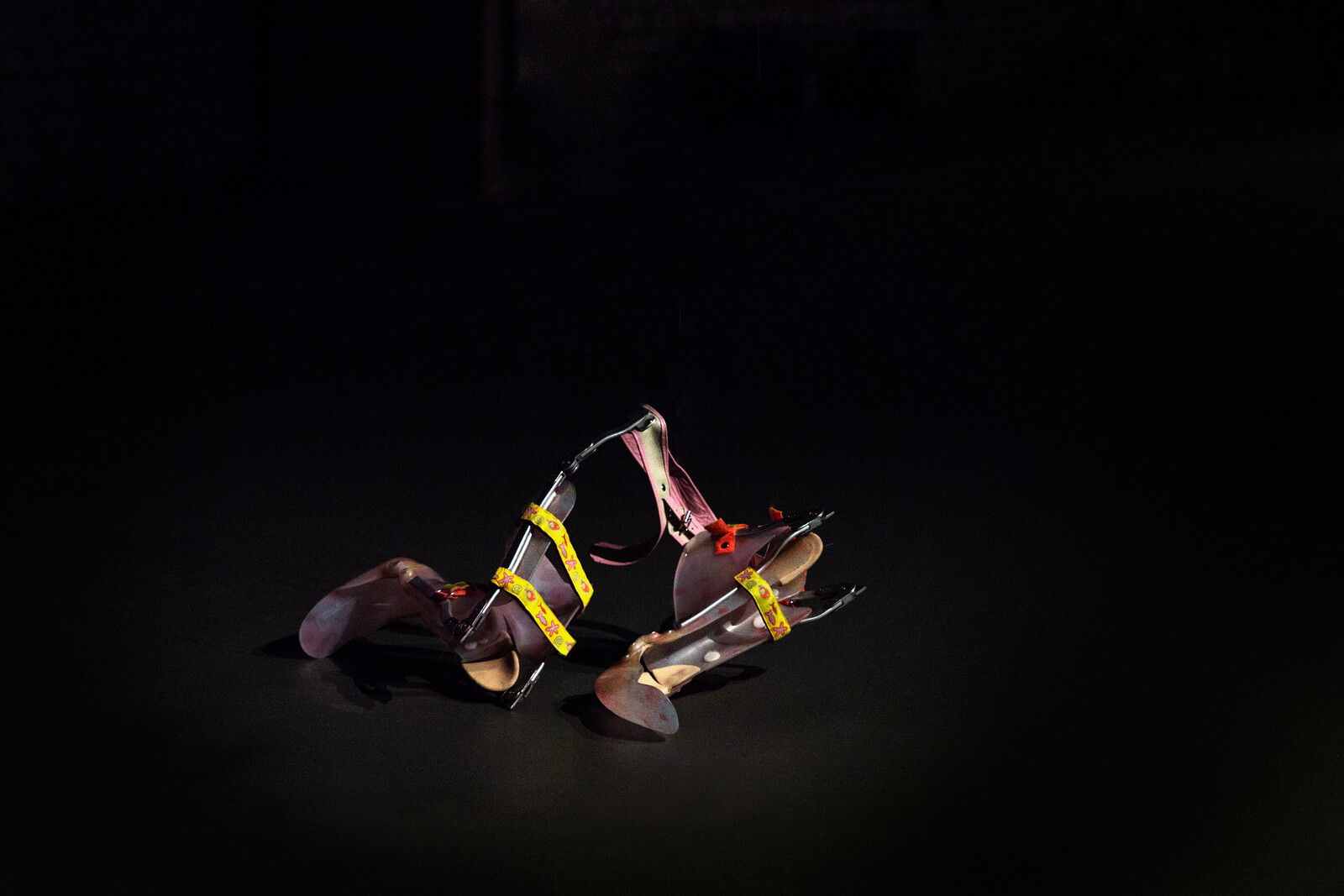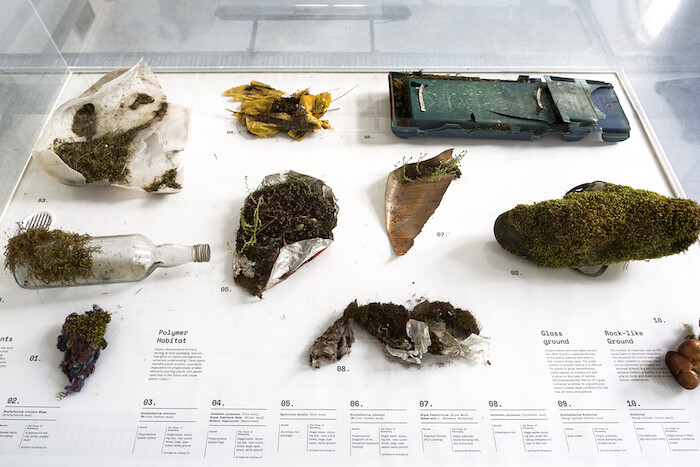Categories
Subjects
Authors
Artists
Venues
Locations
Calendar
Filter
Done
September 11, 2020 – Review
2nd Riga International Biennial of Contemporary Art, “and suddenly it all blossoms”
Novuyo Moyo

If you can’t beat it, as the saying goes, incorporate it into your curatorial concept. After initially postponing the second edition of the Riga International Biennial of Contemporary Art (RIBOCA), the curatorial team led by Rebecca Lamarche-Vadel elected to embrace Covid-19, acknowledging the virus as a “significant author” of the exhibition. Change is the only constant and every end—for the curators, if not for the artists who weren’t able to show their works as initially intended—a potential beginning.
Taking place in the partially derelict port district of Andrejsala, the biennial is haunted by the specters of missing work due to shipping problems brought on by the crisis. Marguerite Humeau’s sculpture of a dying whale The Dead (A drifting, dying marine mammal) (2019), unable to be transported across borders, is represented by a guide narrating the audience through what should be there and a sound recording in an empty space. Elsewhere, such absences are felt in the crossed-out or differently colored sentences attesting to abandoned or amended plans that pepper the catalogue, and the starkly painted lines on the floor of the port building indicating the walls on which art would have been displayed. In juxtaposing absence and presence, “and suddenly it …
September 4, 2018 – Review
Riga International Biennial of Contemporary Art
Tom Jeffreys

The inaugural edition of the Riga International Biennial of Contemporary Art (RIBOCA) presents work by 104 artists with the intention of “taking the temperature of the human condition at the present moment.” The Anthropocene looms appropriately large, as do capitalism, technology, migration, work, time, identity (be it individual, regional, or global), and Latvia’s post-Soviet history. Diana Lelonek’s installation Centre for Living Things (2016–18) touches on nearly all these concerns. Displayed like laboratory specimens in a series of vitrines is a selection of discarded, human-made objects, now home to various vegetal life forms. Lichen covers a baby’s boot, feather moss grows from an old paint roller, more moss grows among the bright wires of a discarded circuit board, and so on. Lelonek has collected these objects from the edgelands beloved of the psychogeographers—“an illegal waste dumping ground near a pine forest,” reads one accompanying label—grouped them under invented categories, and listed the names of the minerals and plant species.
In assembling these hybrid forms that are neither simply natural nor artificial, Lelonek highlights the wastefulness of consumerism and speculates on possible environmental futures. The approach feels apt given the installation’s setting in the University of Latvia’s former biology faculty. This grand neo-Renaissance …
